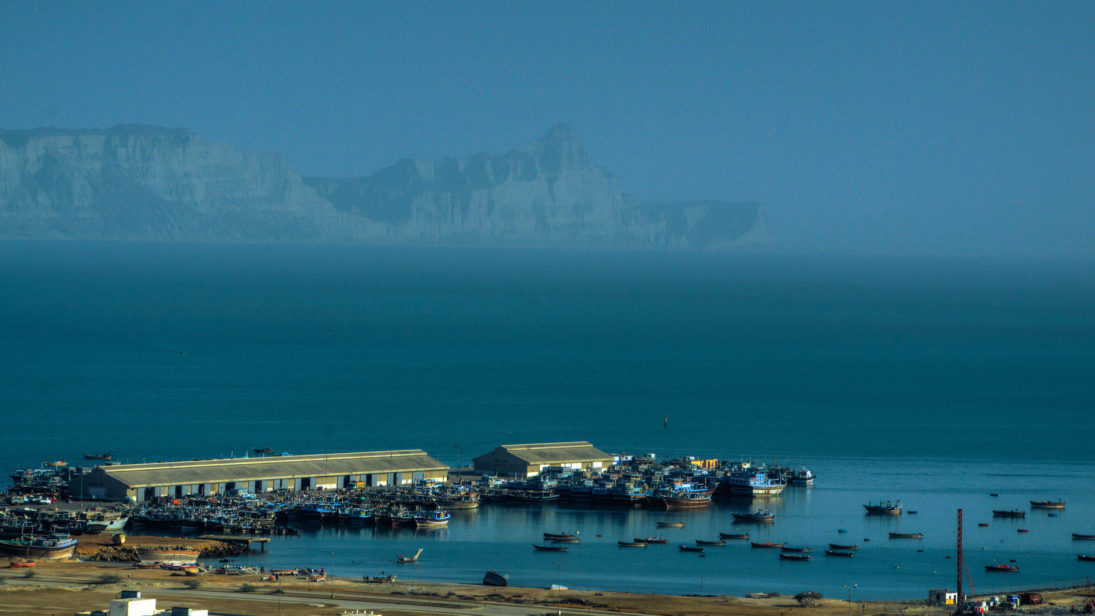
Muhammad Daim Fazil
This past weekend, all eyes were on the One Belt One Road (OBOR) summit in Beijing, attended by 29 countries and around 1500 participants from across the globe. Prime Minister Nawaz Sharif led Pakistan’s delegation, which consisted of all four provincial chief ministers, senior cabinet members, and other officials.
OBOR is an extravagant venture initiated by the Chinese government at a time when the United States has just relinquished the Trans-Pacific Partnership (TPP). This allows China to extend its sphere of influence from Asia to Europe to Africa. Situated at the heart of Chinese mega plans, Pakistan has the opportunity to become a hub of economic activity.
Massive Chinese investment in the shape of the China-Pakistan Economic Corridor (CPEC) is expected to steer the economic wheel of Pakistan, which is marred by energy shortages and infrastructural hiccups. The flow of Chinese money would create new jobs and opportunities, especially for underdeveloped regions of the country such as Gilgit-Baltistan and Baluchistan.
Being a country that has faced international isolation in recent times, this Chinese investment also has reputational advantages for Pakistan and can help drive investment from others. Additionally, India’s no show at the summit and its decision not to join the OBOR initiative positions Pakistan as the main partner for China in the subcontinent.
But the road to development and prosperity is not easy. Pakistan has to tackle the constant menace of terrorism, needs to bring transparency in CPEC projects, and must not allow political disorder. OBOR is a great opportunity for Pakistan to utilize its location, geography, and potential to integrate with the world. As Nawaz Sharif stated while addressing the forum: “[…] CPEC is an economic undertaking open to all countries in the region. It has no geographical boundaries.”
Rajeshwari Krishnamurthy
While several high-level delegations from different small and big countries attended the Belt and Road Forum (BRF) in Beijing last weekend, India’s was absent. Indeed, there have been several arguments both for and against New Delhi’s decision to not attend the Forum, as also regarding participating in the Belt and Road Initiative (BRI); and they all prioritize different parameters. Perhaps it might be worthwhile to consider some practical lines of inquiry.
So far, there is insufficient evidence to substantially demonstrate not just the potential but also the likelihood of the actualization of the projected economic dividends of the BRI. India’s decision-making process regarding its participation in the BRI is comparable to any entity that is asked to invest in any venture. In addition to the fact that India’s core concerns are not taken up with sincerity, a mere promise of substantial dividends will be insufficient to convince New Delhi. Moreover, there appears to be no cause to hurriedly process the proposition or to choose to jump on board. This is especially so when even in the limited context of the much touted China-Pakistan Economic Corridor (CPEC), Beijing’s “all weather friend” Islamabad is facing serious challenges within the country to convince non-military stakeholders about its prospects.
Given such a state-of-affairs, will India truly be harmed should it take the required time to observe and assess evidence of the BRI’s success, viability, and sustainability? In any case, preferences can change when adequate motivations emerge. Additionally, if China is indeed convinced of the BRI’s success, will it not continue to want India to join even at a later stage – in which case, waiting may not have downsides for India after all?
The BRI may be projected as an international initiative, but at its core, it is President Xi Jinping’s legacy project and an active tool that is being used in China to accord to him a cult status equivalent to what Mao Tse-tung enjoyed in his heyday by molding domestic public perception about Xi’s international stature. In that context, is it not unwise on China’s part to expect India to acquiesce to its requirements – and overlook matters that Beijing is well aware are not small concerns for New Delhi – without offering something substantial in exchange?
If projections on economic growth are any indication, it appears that for now, India might not find consequences of its absence from the BRI or the BRF beyond what it can control or manage. Conversely, China seems to require the BRI more than India.
So far, Beijing’s words and actions do not match, vis-a-vis its narratives about the BRI. China’s conduct vis-à-vis Kashmir and Arunachal Pradesh (among other matters), has not been promising. Naturally, nobody prefers a lopsided deal. So, what does the BRI truly offer to India? If Xi is serious about the BRI and sees value in India’s participation in it, China would eventually have to cease being frivolous in its negotiations and offer India something worth considering; and not just mere prospects of economic opportunities.
***
Editor’s Note: Click here to read this article in Urdu
Image: Flickr, umairadeeb


